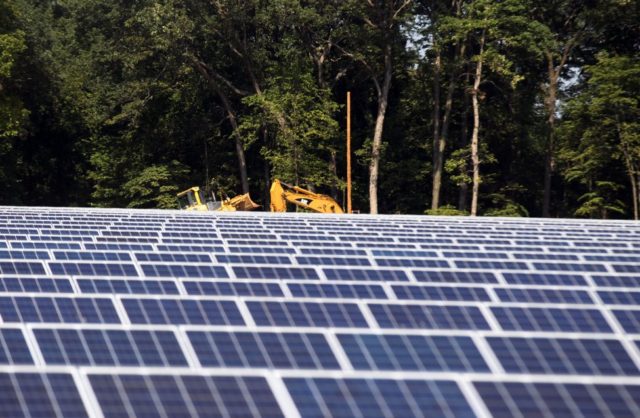Dec. 14 (UPI) — New investments in green energy won’t have the same impact everywhere, researchers say.
Some places will gain greater environmental benefits from renewable energy sources than others, according to a new study published Monday in the journal Nature Sustainability.
“For years, researchers have taken different approaches to try to assess the environmental benefits of renewable energy,” study co-author Harrison Fell said in a news release.
“The Energy Information Administration started releasing detailed data on renewable power generation in 2018, and we realized that we finally had an opportunity to address this issue using real-world data,” said Fell, an associate professor of energy economics at North Carolina State University.
The newly published study is the first to quantify emissions reductions from new solar and wind generation using detailed green energy production data from different parts of the United States, while also accounting for the trade of electricity between different regions.
The data showed that while replacing traditional sources of electricity with wind and solar power sources will help reduce carbon emissions regardless of the location, it varies.
The reductions are greater in places like Florida, where energy grids are mostly powered by fossils fuels, than California, where green energy sources have already become thoroughly integrated into the power grid.
“One [megawatt hour] MWh of solar power produced in Florida reduces carbon dioxide emissions by about twice as much as one MWh of solar power produced in California,” said study co-author Jeremiah Johnson.
“That’s because California already has a cleaner grid when compared to other regions. So offsetting an hour of conventional power generation in California reduces CO2 emissions less than offsetting an hour of conventional power generation in Florida,” said Johnson, an associate professor of civil, construction and environmental engineering at NC State.
Researchers hope policy makers will use their findings to funnel green energy investments to the places where new sources of green power will have the greatest effect on carbon emissions.
According to the new study, green energy investments don’t just benefit those living close by.
Because of the way different regions of the country exchange electricity, green energy projects in one state can help offset traditional power sources in neighboring states, researchers found.
“Right now, renewable energy is largely driven by policies that vary from state to state,” Fell said. “Our work here highlights one reason that this is not a very efficient approach to energy policy.”
“A federal approach to renewable energy policy would be better able to account for the interstate nature of energy production, energy consumption and environmental benefits,” Fell said.

COMMENTS
Please let us know if you're having issues with commenting.